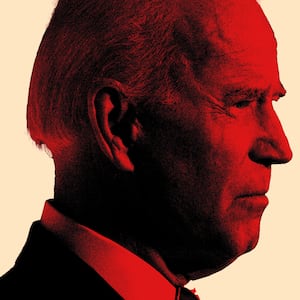In the fight to hold onto control of the U.S. Senate, there are few races that are more closely watched and more consequential than the one playing out in the notoriously purple swing state of Pennsylvania.
There we have on display a proxy fight—or some may say, a bellwether for what could come should Donald Trump decide to make good on his blind-sourced threats of running again in 2024.
On the one hand you have Trump-endorsed Dr. Mehmet Oz, a daytime television talk show host, who opposes abortion at any stage of pregnancy on the grounds that it is murder, but sees little issue having sex with one’s second cousin.
On the other hand, you have Lt. Gov. John Fetterman, a former college football player, AmeriCorps member, Harvard Kennedy School graduate, and former progressive industrial-town mayor.
Back in May, days before winning the Democratic primary, Fetterman suffered a stroke. While most medical emergencies are unforeseen, his was particularly shocking given his relatively young age and stout appearance—straight out of central casting, Fetterman still very much looks like the offensive tackle he was years ago when he played for the Albright College Lions.
Fetterman subsequently took a long break from the campaign trail, only recently reappearing on the stump, but continued to dominate polling going into the fall—giving Dems a hopeful indication that Trump’s kooky doctor friend was going to take a beating on election day. But in recent weeks the margin has tightened sharply. While some pundits may chalk that up to Republicans simply coming home as election day nears, the Pennsylvania gubernatorial race has not seen the same tightening, suggesting something specific to Fetterman is afoot.
The question is, what?

John Fetterman talking with locals in Clairton, Pennsylvania.
Michael S. Williamson/The Washington Post via Getty ImagesNavigating the unforeseen in any campaign is daunting—but having to chart out a course for a 53-year old candidate recovering from a serious medical condition in real time is perilous—particularly where the national implications are this high. That’s why the decisions made on how to engage the public on the subject were so critical.
Since the dawn of time, politicians have grappled with how to address questions surrounding their health and their fitness to serve. Fear of an ageist and ableist public (and the potential for the opposition to weaponize perceived physical or mental weaknesses) led FDR to keep the public mostly in the dark about his partial paralysis from polio. JFK’s youth aided his ability to mask from the electorate his lifelong health problems. Grover Cleveland covered up cancer surgery, using the cover story of a Long Island fishing trip to obscure his having the surgery performed on a friend’s yacht.
But those presidents had the advantage of not living during the age of social media and twenty-four hour press cycles to aid and abet their deceptions. In 2022, politicians are afforded no such privacy or leeway—a lesson Donald Trump learned in real time while his own doctors attempted to deceive the public about his health, mere weeks before the 2020 presidential election.
That’s why Fetterman’s lack of transparency about the challenges he is facing amid his recovery are proving to be such a drag on his campaign. By staying out of the spotlight for an extended period—running an internet-driven campaign and offering scant updates to the public on the specific stages of his recovery—he’s given Republicans the opportunity to make an outsized issue of his difficulty with auditory processing, which has nothing to do with his cognitive ability or his fitness to serve in the U.S. Senate.
But this is politics, which isn’t fair, and optics can be everything—especially right before an election.
Now, with the one and only televised debate drawing near, the lifespan of the Fetterman campaign’s controlled public engagement strategy is about to run its course, as evidenced by the reaction to Fetterman’s first broadcast television interview since his stroke.
Instead of a contrast on policy positions like abortion, the economy, or Jan. 6, the interview generated reams of news stories featuring speculation of the state of Fetterman’s physical and mental recovery, and his reliance on closed captioning in conversation.
Putting aside the gross irony of a purported "doctor" misrepresenting a person's medical condition to the public—however unfair or unkind it may be—Fetterman’s tactical mistake brought this reaction upon himself.
The state of his recovery was always going to be relevant to voters, who (especially in the current political environment) are hungry for full transparency and authenticity. Had Fetterman appeared publicly and answered these questions during the summer, the headlines we are reading today would have been recycled news by Labor Day. Between then and now, the campaign could have used the time to educate the public on what his recovery would look like and why anyone attempting to politicize or weaponize his condition was doing just that.

Dr. Mehmet Oz
Mark Makela/Getty ImagesWhile this is a less than ideal scenario at this point on the calendar, the good news is he can still remedy it, and he must do it before the first debate.
Give voters more credit—they can handle information about a health condition and, if provided the information, would actually resent a political tactic attempting to exploit it. Fetterman should, at the earliest opportunity, talk frankly with the public about his condition, and also allow his doctors to speak openly with the press about his recovery. He should release relevant medical records and answer every question. He can use this time as an opportunity to address Oz’s ugly claims and pivot back to the issues that matter to Pennsylvania voters—and why Fetterman is the candidate with the proven track record to make real change.
But he needs to do it right now, in this same news cycle, or he’ll cede control of the narrative to Republicans, who have no compunction of misleading the public with claims that Fetterman’s stroke makes him unfit for office.
In the aftermath of the interview, Fetterman took to Twitter to address questions about how his stroke is impacting him head-on: “Recovering from a stroke in public isn’t easy. But in January, I’m going to be much better – and Dr. Oz will still be a fraud.’
I, for one, agree 100 percent. But I’m not a Pennsylvania voter—the people he needs to convince, as the fate of the United States Senate hangs in the balance.
Fetterman and his campaign made an unforced error in being opaque about his health. It’s not too late to remedy it.









